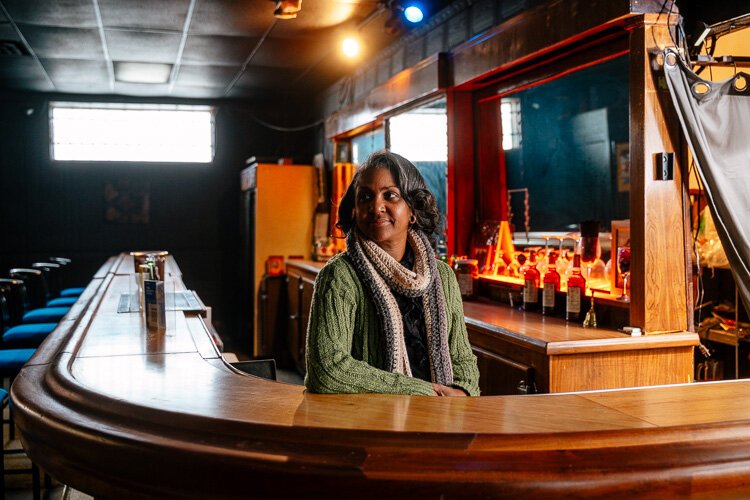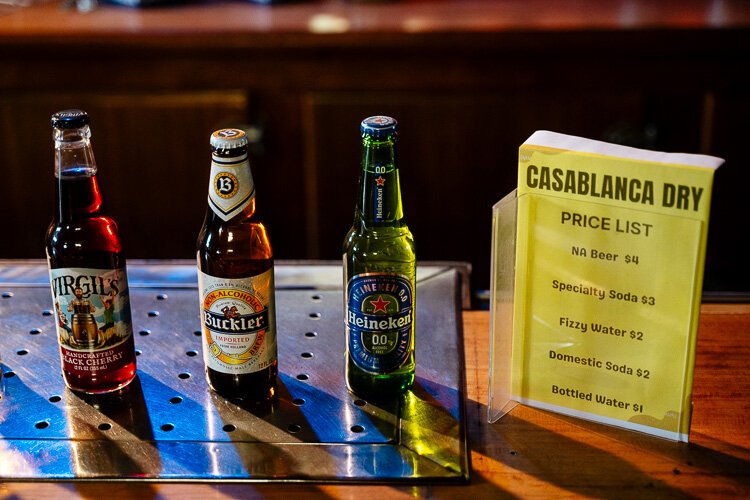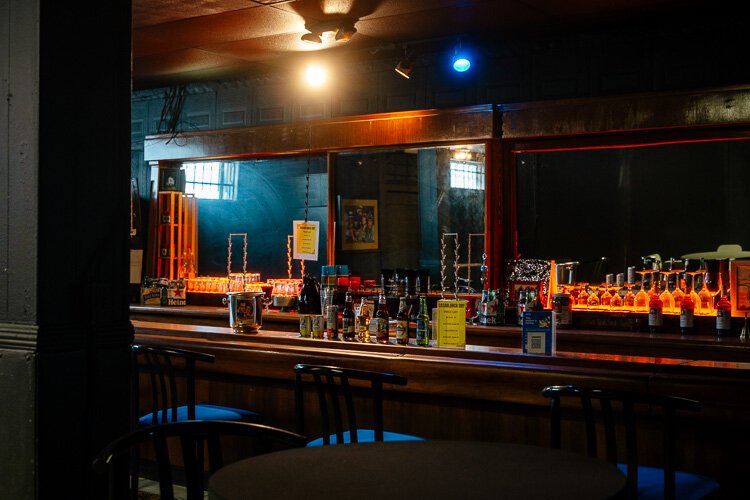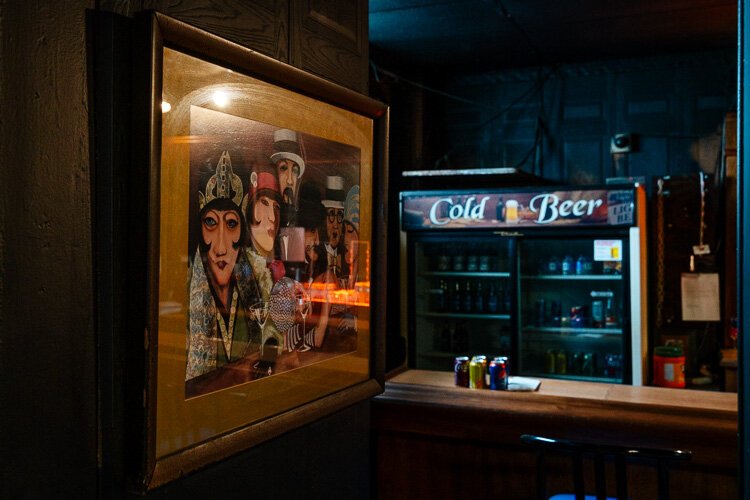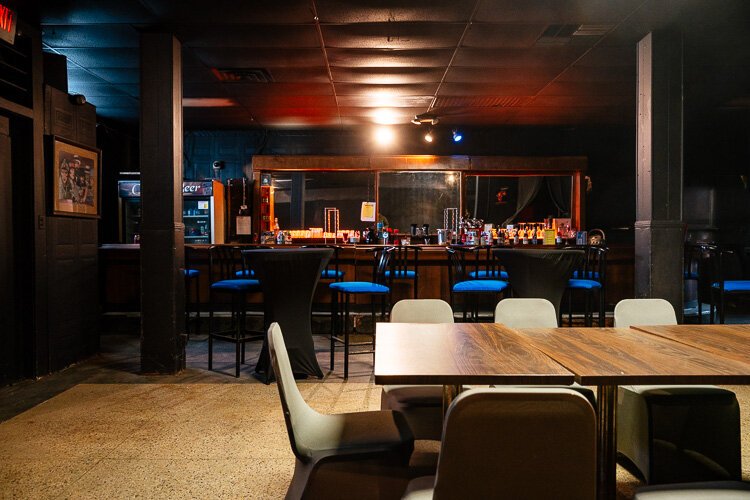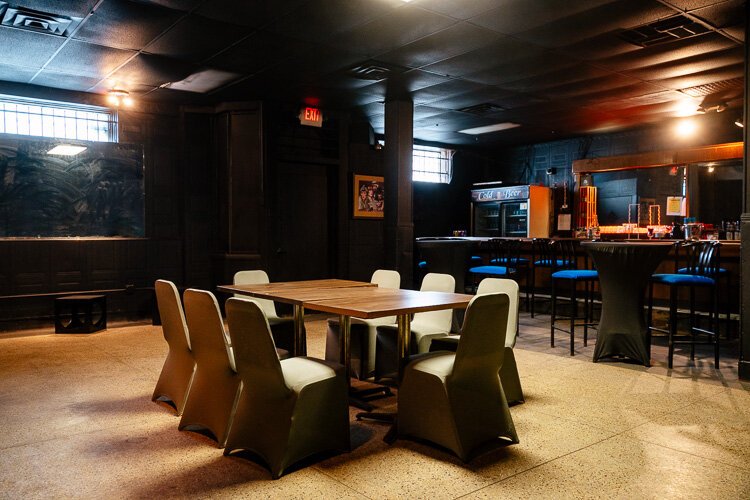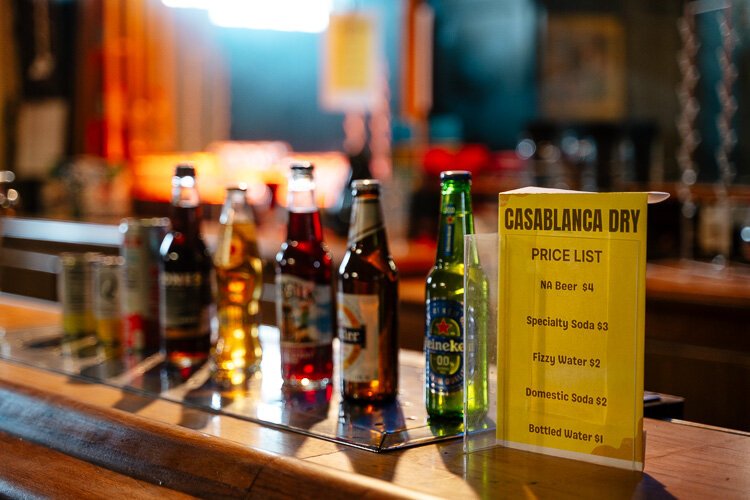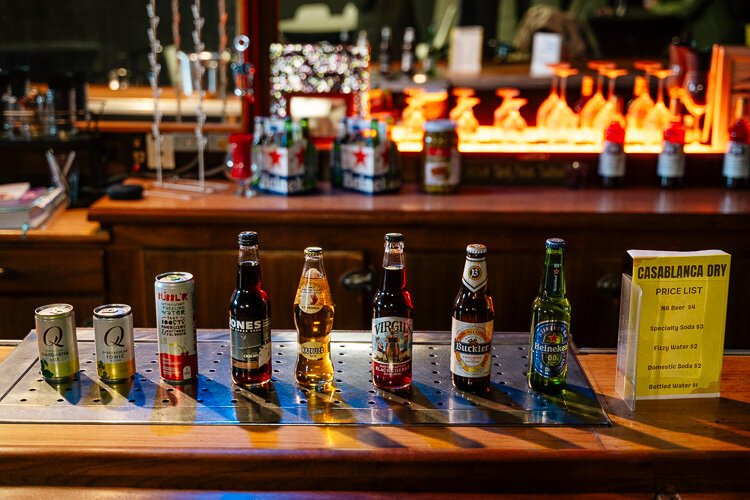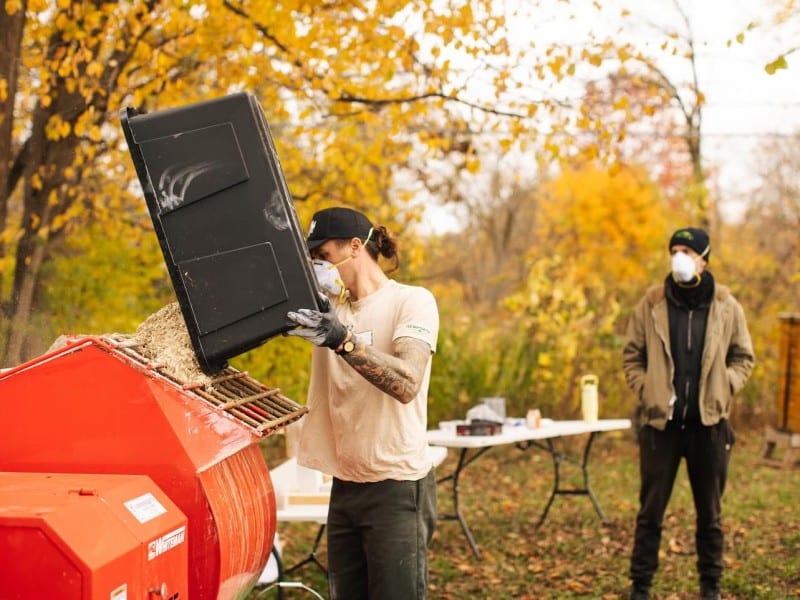Partner Partner Content Meet the legacy business owner evolving Detroit’s nightlife scene with a dry bar concept
Handed down through generations, Terry’s Casablanca Bar on Detroit’s Eastside is undergoing a rebrand as a dry bar, a safe space to enjoy non-alcoholic beverages. Owner Terri Banks-Faison is inspired by the city’s micro-entrepreneur support, like the guidance from BUILD Institute.
This is part of a reporting series, supported by BUILD Institute, that chronicles businesses and entrepreneurship in Detroit.
Creating the foundation for a successful small business isn’t always easy. There are years of hard work behind the scenes at small businesses, going from ideation to reality, one location to two locations, from website to brick-and-mortar. Leveling up a business and its surrounding community takes work from just that – an entire community of folks. For many Detroit small businesses, at the heart of that supportive network is BUILD Institute.
Their Corktown hub has helped entrepreneurs connect, learn, launch, and fund their businesses since 2013. Today, they remain a vital asset to small business owners who have been able to stick around long enough to see generations of hard work pay off. Through consistency, sometimes a necessary adaptation, these steadfast entrepreneurs help create a true sense of community with their intergenerational businesses.
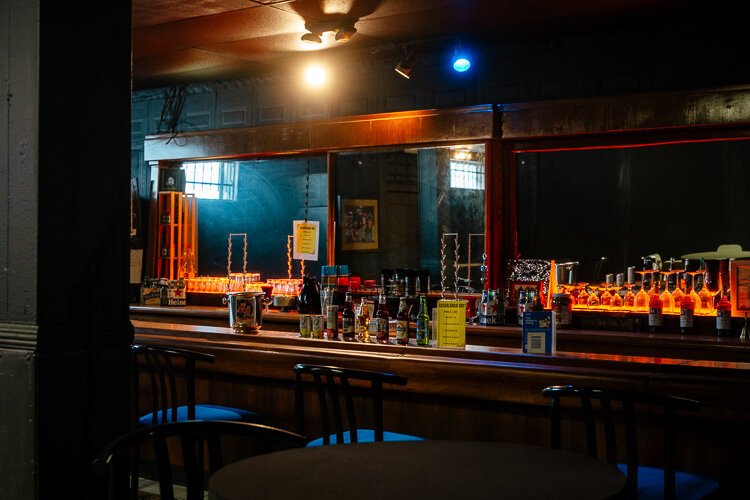
When a small business succeeds, it can lay the groundwork for a flourishing neighborhood, providing a vital impact on the local economy. Local residents become employees, and the cash flow remains on the same nearby roadways, pumping back into the community. It drives further development, and increases the likelihood that others follow suit, bringing their ideas to the neighborhood. Vacant storefronts transform to local boutiques, eateries, and the next generation prospers.
Intergenerational businesses offer cohesion for communities, neighborhoods, and families,” says BUILD President and CEO Regina Ann Campbell. “They are the custodians of stories that connect the old to the young creating context for memories and hope for the future while providing a tangible blueprint and model for success.”
“Terri’s business is a great example of what we offer alumni and businesses that are beyond proof of concept,” says Campbell. “Our ReBUILD and BUILD Externship was designed according to the feedback and data from our alumni about being stalled. They have expressed having consistent customers and revenue, desire to scale, and want to grow, but don’t know what to do next. At BUILD, we have evolved to meet our alumni needs with advanced customized support and resources to not just launch, but also help businesses scale.”
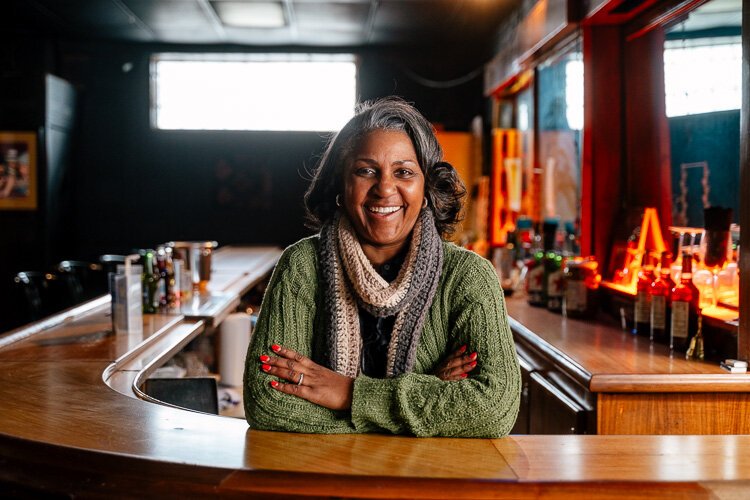
Terri Banks-Faison, Casablanca Dry (formerly Terry’s Casablanca Bar and Lounge)
Back in the early ‘80s, Terry’s Casablanca Bar and Lounge on Gratiot Avenue on Detroit’s Eastside was a go-to nightly spot for many factory workers and local neighbors to play pool and have a cold one. Today, the business is undergoing renovations and a rebrand as a dry bar, a safe space to enjoy non-alcoholic beverages and family-friendly entertainment. Daughter, Terri Banks-Faison is at the helm of the renamed business, Casablanca Dry, which has been in her family since 1979. Banks-Faison took over the bar, and works to ensure his legacy remains.
“When my father purchased this bar, he was a manager at Faygo right down the street. He used to go here for lunch, it was a restaurant at the time,” she says. “The owner was aging, and saw the diligence and the hard work that my father had. He asked him ‘would you like to buy this restaurant?’ My dad never owned a restaurant, but he bought it because he saw it as an opportunity to really impact that side of the Detroit area. It’s more of the Eastside, I call it East of downtown. He saw it as an opportunity to really impact that area in a different way. He’s from that side of town, and he thought this might be a new and different way to earn money, instead of working for a company.”
Although the space looks and feels different, and has a different outlook, the heart of what it hopes to provide for the community remains the same: a comfortable gathering place. The reason for the bar becoming a non-alcoholic, dry bar is for a few reasons, says Banks-Faison.
“Now, decades later, I find myself in that same space wanting to continue that legacy. I want to bring forth a nice business, a nice place for people to go enjoy themselves,” she says. “I’ve evolved at a time where I have friends and family members who do not and cannot have alcohol, whether it’s because of health reasons or just different vices that have led them to that decision. To me, it’s an opportunity to honor that space where they can still come to a place that has a reputation for people to come, have a good time, for the entertainment part as well as for the opportunity to come and be able to enjoy yourself in a conscious-free area.”
Once her father passed away, Banks-Faison admitted it was hard to stomach the fact that she felt her business was contributing to dangerous, unhealthy lifestyles.
“The people who used to come in the ‘80s were still coming in 2017 and 2018,” she says. “The amount they would drink was bothersome to me. It was something I just could not condone. I couldn’t continue it, I felt like I was feeding alcohol to senior citizens, and it just wasn’t a good look. I think the nail on the head for me is when we had to get a gentleman in his car. All that night I just thought ‘is he going to make it home?’ He was 82 years old. I said, ‘okay there’s got to be a different way to do this.’ It just shook my soul, and I said my dad would not want this.”
She remembers, as a young girl, visiting her dad at work behind the bar. It was the same spot every day and night, there was a routine. He would stand in the same place, pour one drink, but never consume it.
“He wanted to be conscious while he was there,” she says. “Now it really resonates and makes so much sense why he did that – he wanted to look like he was social, but didn’t want to consume because he saw what it could develop into.”
A week after Terri stood in the same position, and wondered if that man would make it home safely, she realized a change needed to happen. She told bar managers the bar would be closing. With the onset of the pandemic though, came a sort of divine intervention. As bars closed down, she used the ‘down’ time to her advantage.
“I used the time to get some business partners, do renovations and then it gave me a couple more years to really think about where I wanted it to go,” she says. “That’s when I decided to continue on my thought about honoring that population of people who might want to come somewhere and have a good time, might not be able to drink anymore, might want to bring their kids and make it a family event. So I thought about how it just opens the boundaries by making it dry. We can focus on different things like flavors, fruits, tonics, and smoothies, not just alcohol. Activities that you see in the space will continue too, like music, entertainment, pool, and sports.”
Witnessing her father’s legacy as an entrepreneur creating generational wealth for his family has been inspiring to the proud, but humble daughter. She saw her father’s bar grow from one business to take over three small storefronts, and grow to include a nightclub. She also saw a pattern of providing opportunities, homes, and jobs to other families.
“When I was younger, on weekends, we were going to collect rent from the apartments that he rented out. We were going house to house. I knew all the people and they knew me by name,” she says. “I thought that was normal, because he was just really a provider. He was a creator of wealth for himself, but he was also a creator of housing for others. When he worked at Ford and Faygo, he was always trying to find ways to get people jobs. He helped people get employment and find ways to provide for their families.”
The other lesson she learned from her father was to be considerate of others, and to remain human and humble.
“That’s one thing he was, he was 100% human,” she says. “He had a lot of pockets of wealth, but he treated everyone the same and never forgot about anybody. There was no pomp and circumstance, it was never ostentatious or over the top. He knew how to treat his family well, but he also knew how to treat people regardless of where they came from, what they had or didn’t have, and I’ve been able to do the same. That’s something I truly value, is that ability to interact with anybody and to pull out the good from anyone, that’s a positive trait passed down to me.”
Although this generational entrepreneur took over a family business she was familiar with, there were still some basic business principles she needed to learn or re-learn to help her manage the day-to-day. That’s where the BUILD Institute BUILD Basics course helped.
“I’m a graduate of BUILD Basics, which was helpful and amazing. I literally had to humble myself a little bit, because I felt like I was starting from scratch,” she says. “The content was great, and I decided to jump on board with some of the things that they were doing with the BUILD Detroit space. I did the GoDaddy website class, which was phenomenal. Then just recently I went to Detroit Soup for the first time, and that was really good because I now know that I’d like to try to do a pitch to get some funding and things like that.”
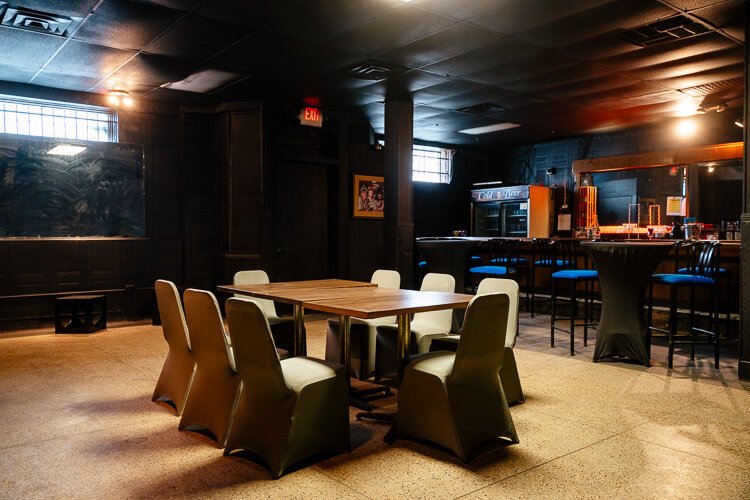
Currently, Casablanca Dry is available for private event rentals, and the goal is to be fully open for regular clientele and events in February of 2024.
Although some might question her choice to stick around the neighborhood through the hard times, Banks-Faison knows the area still deserves local, thriving businesses.
“The corner that my business is on doesn’t look the best,” she says. Most of my friends are like, ‘that’s such a rough area. I’m like ‘okay, I understand.’ You have to have patience to see where the growth and renovation of Detroit is coming down that Gratiot Corridor. I literally saw Louisiana Creole Gumbo move further down Gratiot, closer to me. I like looking at all those different signs of hope to keep me energized and motivated to continue treasuring the spot that I’m in. I know good things are happening, I see the changes over the last 7-10 years where different neighborhood businesses are popping up. All of that renewal on the Eastside has been so inspiring.”
Meeting fellow dreamers, doers, and thinkers at local incubators and crowdfunding competitions, she’s been inspired by what she’s seen in terms of growth, development, and redevelopment in neighborhoods.
“I’ve met all these amazing entrepreneurs that are doing things for the first time, or as families, and are taking over businesses,” she says. “Especially after COVID, a lot of stuff was going on in terms of people trying to re-energize areas. I love to see that, and I feel that energy is still going on now. It’s been really nice to see.”
All photos by Nick Hagen.
